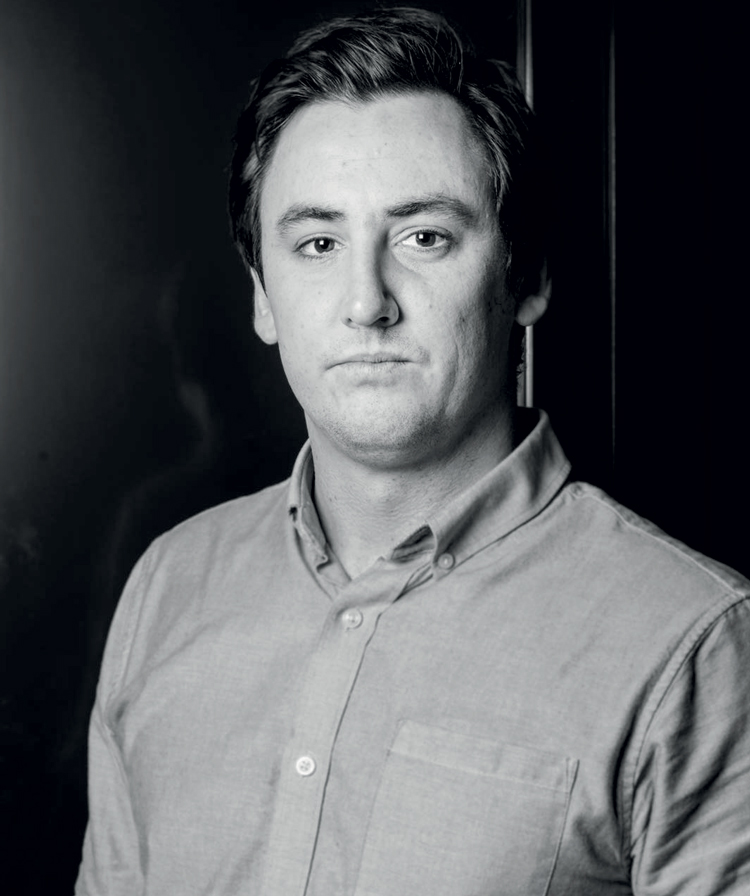
Jason Williams needs little introduction to Australian readers. The Queensland native has worked in Brisbane, Melbourne and Sydney, was crowned our Bartender of the Year in 2010, and took out the Beefeater 24 Global Bartender Competition in 2013.
In 2015, Williams finished up four years as Keystone’s group bar manager to relocate to Singapore and take up a role as creative director with Proof & Company, the collective behind 28 Hong Kong Street — the number one bar on Asia’s 50 Best Bars list.
For this instalment of Drinks With, we gave Williams a call and talked about what really is an interesting role for a bartender, the burgeoning drinking scene in Singapore, Hong Kong and the rest of the region, and about the kind of work that an agency like Proof and Company does.
You’ve been there for a year — can you tell us a bit about your role?
My role is that of creative director for Proof & Company.
A lot of people I guess get confused about what Proof & Company is, but we’re a collective brands, bars and spirits creative agency. We avoid terms like consultancy and avoid terms like importer and distributor just because we think it’s so much more than that. We have 28 Hong Kong Street which is our small little cocktail bar that’s kind of the heart and soul of Proof & Company and that’s where Proof came from. The boys who founded Proof found that there was a demand and a lack of supply of high quality spirits, liqueurs and bitters, so they started bringing in these products and selling them to other bars in Singapore, and that’s snowballed so now we have about 200 accounts in Singapore and 100 in Hong Kong off the back of that.
Off the back of that eople like Michael Callahan, Zdenek Kastanek and Joe Alesandroni all offered genuine, organic support for these accounts and it was part of this want and desire of Proof & Company to lift the standard of drinking and guest experience in Singapore and Hong Kong. People like Zdenek would go into their bar and help design their bar or their cocktail list, offer training or guest bartending, that was three years ago they started doing that. That has now snowballed.
We formed a team, which is my team, we formed a year ago, and we’re modelled like a traditional creative agency or a graphic design firm, but instead of having graphic designers or ad people we’ve got bartenders that we call spirits evangelists and our creative scope of work involves all the stuff we’re passionate about: conceptualising venues from scratch whether it’s the name or the concept; working with our external partners whether like interior designers, designers or creative agencies, and then we go through the whole process of designing a bar… just like opening up a venue.
We’re passionate about not being known as consultants. We’re really committed creatively and emotionally to our projects. For example, Manhattan Bar, which was completed before I started, that was our big project and that was in the World’s 50 Best Bars and in the top ten hotel bars at the Spirited Awards. It’s about two years old now and we still have a weekly two hour meeting with them, so there’s serious follow through. We help them with their guest bartending program, we help with their new drink development. I coordinate that part of our business, and we’ve got a couple of big projects in Singapore this year and we’ve got 15 that are live at the moment.
You’ve been there for a year — how’s that been? What’s the Singapore scene like?
The scene is great — Singapore is on fire at the moment. A lot of people globally are in Singapore or talking about Singapore and South East Asia in general.
Everyone talks about the big changes that have happened in the past five years And a lot of people do attribute some of those changes to 28 Hong Street. There’s similarities with what happened in Sydney with the small bar legislation, you could really feel a change in the local industry and bars kept popping up all the time. Instead of having any serious legislation changes or anything like that [in Singapore], I think there was just this awakening of a beast.
Singapore is quite westernised, there’s a lot of expats and Singaporeans are quite western as well. You’ve got this exposure and want for better drinking experiences and better products and better bars, then you’ve got the expat community which comes from these developed cocktail markets like London, New York and Sydney, and then you’ve got a high level of investment.
When 28 kicked off, there was only a smattering of bars that were any good to be honest, some of them are still open, some of the don’t exist anymore. Tippling Club was here, but it wasn’t really a bar as such — it was a restaurant that did some really avant-garde cocktails.
When 28 started people realised there was a demand, and since then there’s been a flurry of great bars open.
What are some of the bars that are really kicking goals?
Other than 28 Hong Kong Street, there’s Operation Dagger which is owned and run by Luke Whearty who is ex-Der Raum, the Tippling Club is still really good; you’ve got Manhattan, which is beautiful, grand hotel lobby bar at the Four Seasons; you’ve got Joel Fraser’s bar, Cufflink Club has been around for three or four years now and do serious volume of cocktails — the style of cocktails is a bit more fun and frivolous but they do serious volume.
Is it mostly expats working these bars or locals as well?
It’s a good mix. Admittedly some of the top bars are opened by expats, whether it’s 28 or Cufflink or Operation Dagger, but there’s a good integration of locals and expats. There is more local-oriented bars that might scoff a bit at the more recent trend of expats opening bars that do well in global competitions. It’s like me saying there shouldn’t be any Italians in Sydney, or any Czech bartenders in London — we live in a global village, you know, but some of the local bars and bartenders don’t accept that it’s a global village and that people can go around the world and work anywhere in the world. By and alrge it’s a really healthy community.
I actually feel kind of the same as I did in Melbourne in the mid-2000’s when there was a really strong scene, there was high attendance at events, everyone had study sessions and everyone would get together and party, there was no competition — just real community focus, and I feel the same in way in Singapore as well.
It’s an exciting time in Singapore, the region’s on fire, and Proof and Comnpany can claim a big part of that.
You see it in Singappore and Hong Kong, and I think you’re going to see it in places like Bangkok, Jakarta, Manila, Kuala Lumpur, I even been to Phnom Penh a couple of times where two great bars have just opened up.

